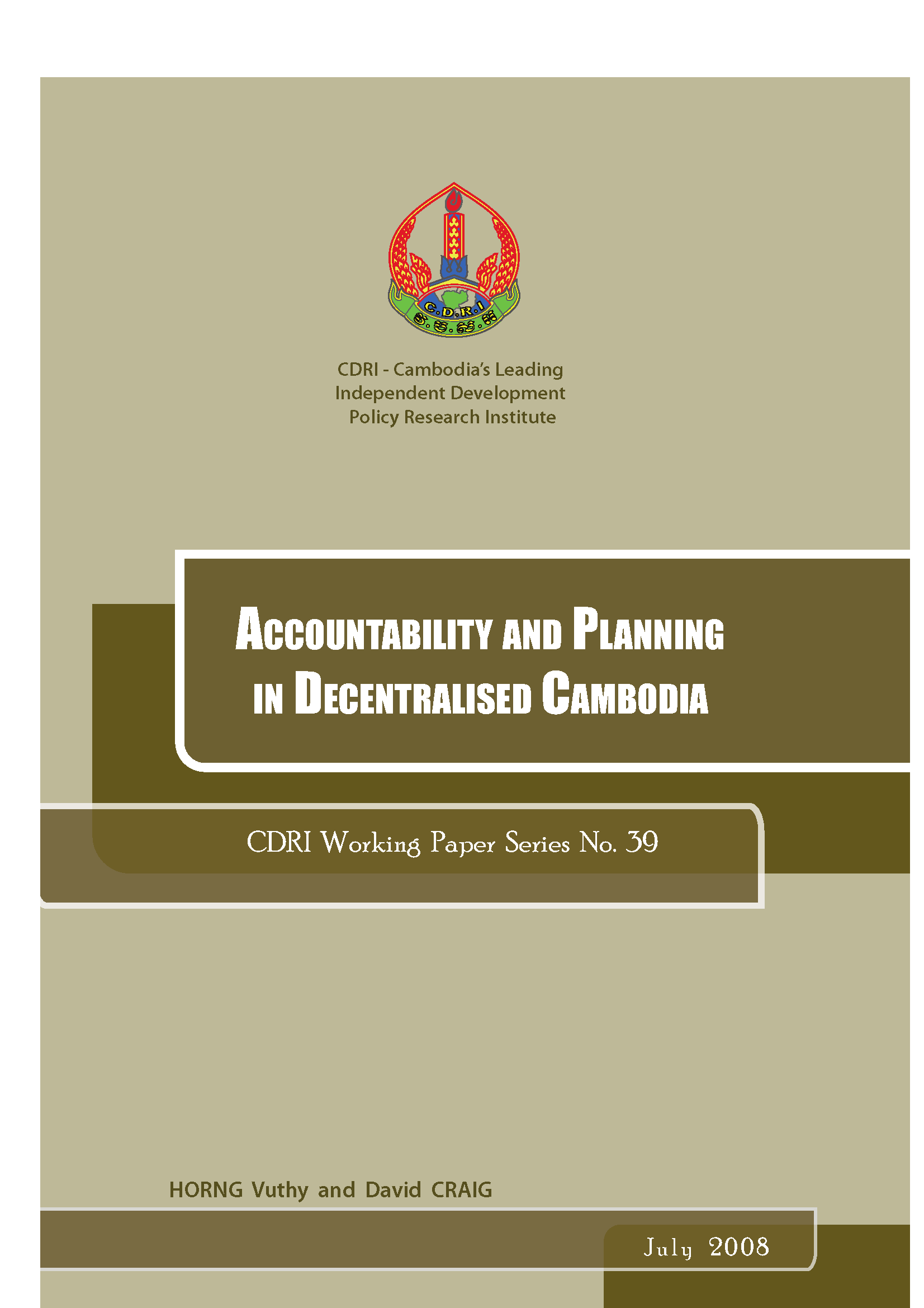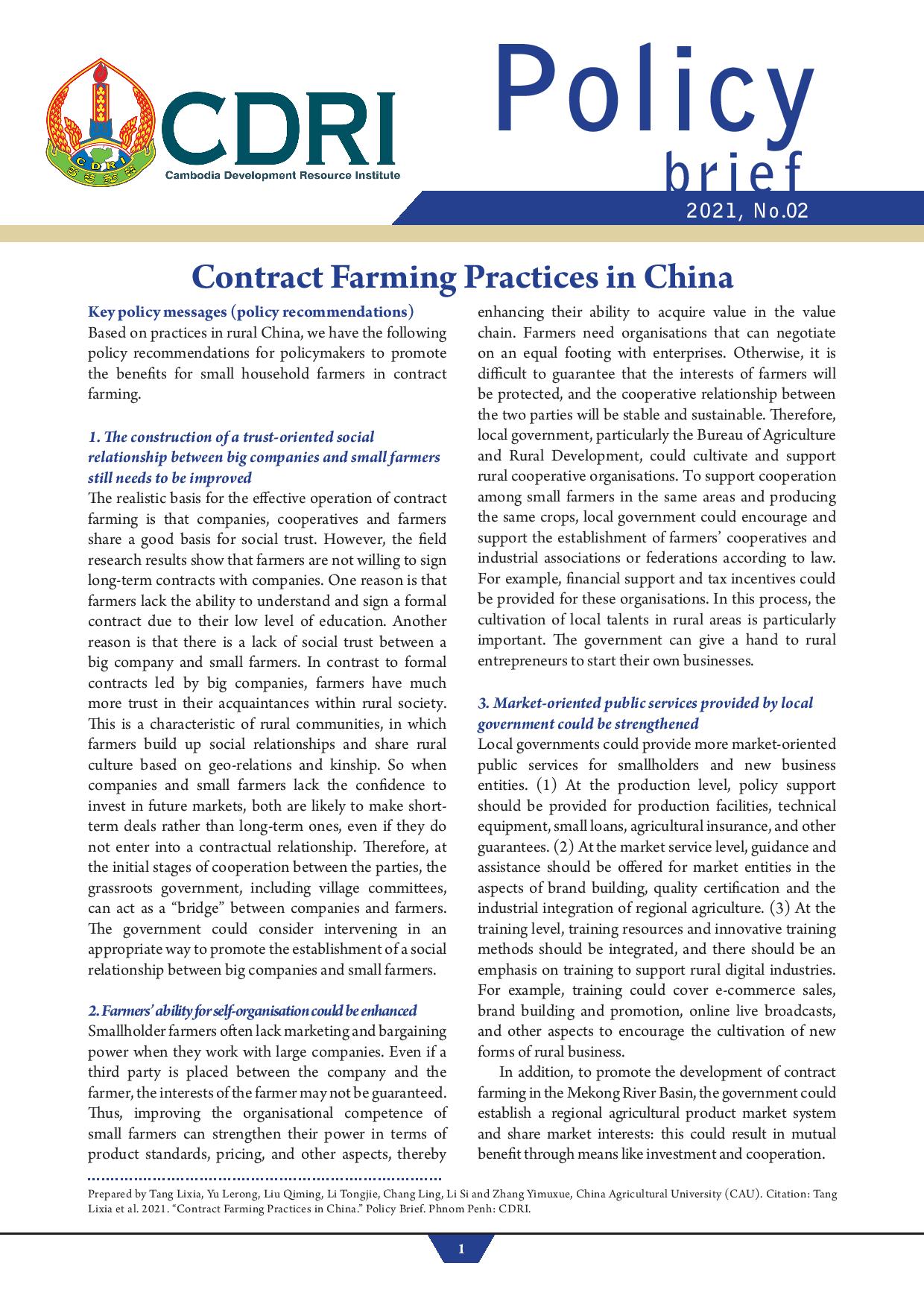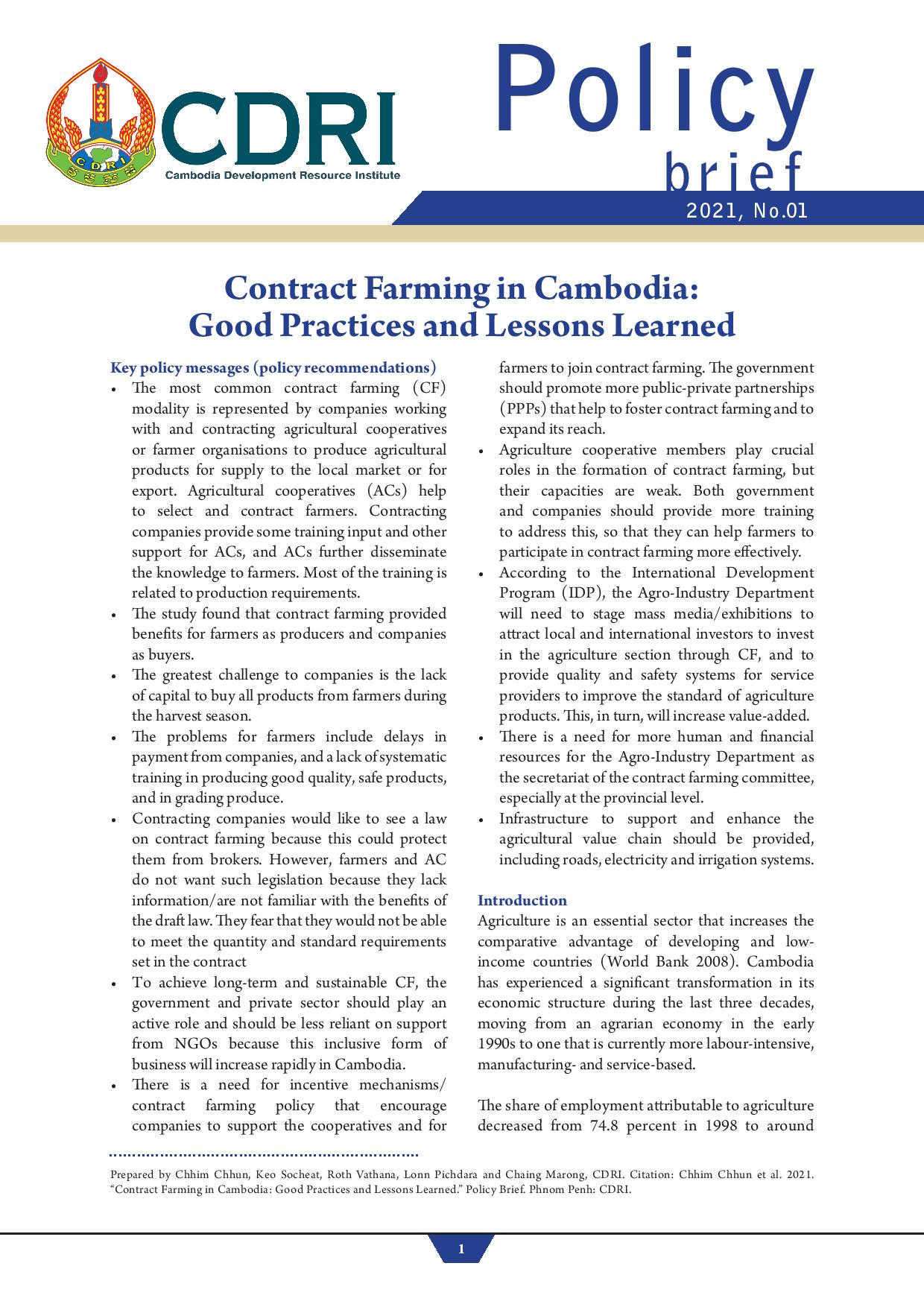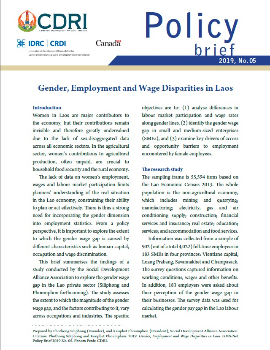
Accountability and Planning in Decentralised Cambodia
Keyword: Sub-national accountability, decentralisation and deconcentration, planning and governance, neo-patrimonialism, aid fragmentation and reform strategies
Abstract/Summary
This paper is about sub-national accountability and
planning, where accountability is the central focus and planning is considered
an instrument for achieving accountability. The paper aims to understand major
issues that affect sub-national planning’s ability to advance accountability
and then to draw key lessons for the decentralisation and deconcentration
(D&D) reform, whose main objective is to promote sub-national
accountability so as to achieve and sustain democratic development. The
findings suggest that the ability of sub-national planning to promote
accountability has been continuously improved by the introduction and
implementation of reform initiatives, most notably the former SEILA programme.
Yet, planning’s ability to advance accountability faces a number of
constraints. They include: (i) a high degree of centralisation in governance,
reinforced by factors including centralised control of major resources; (ii)
overriding strengths of neo-patrimonial networks, (iii) lack of consistent
progress of major related reforms and (iv) complexity in and fragmentation of
external aid delivery.
Looking ahead, if the D&D reform is to achieve sub-national accountability for democratic development, the reform must find and make use of opportunities to overcome the above mentioned constraints. The opportunities may include emerging reform champions and leadership, local electoral politics introduced by D&D reform and demographic change and the changed expectations of an emerging middle class and private sector. To leverage these opportunities, this paper recommends that the reform design and implementation pay attention to the following:
- personal and systemic incentives, resources, rewards within the governance arrangement;
- personalised norms and political leadership and strategies of key individuals in the reformed sectors that enable them to obtain better accountability outcomes;
- the nature of central-local government relations;
- core structural elements like planning, public finance and human resources;
- promotion of local political dialogue based on policy and research-based evidence;
- the nature of the demand of the emerging middle class and private sector; and
- the likely effects of various donor modalities in relation to the above.



